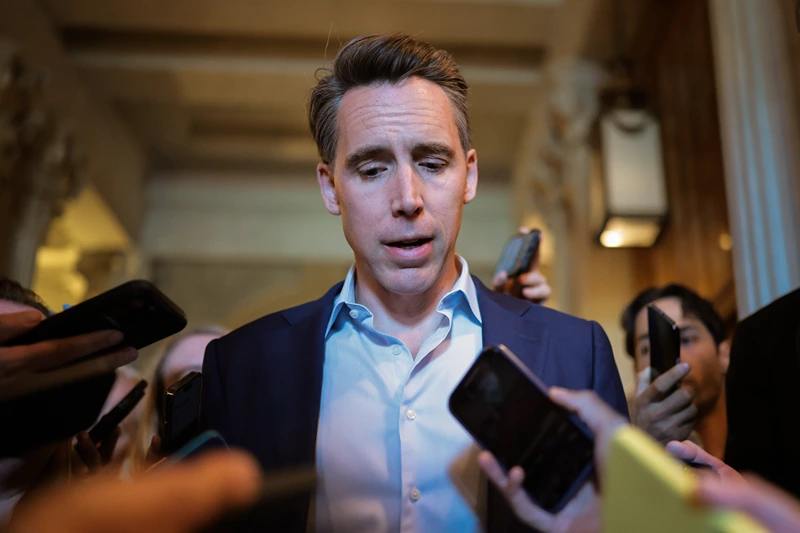
OAN Staff Blake Wolf
1:29 PM – Wednesday, June 11, 2025
GOP Missouri Senator Josh Hawley is leading the charge in introducing legislation to raise the federal minimum wage to $15 per hour in a bi-partisan push.
The legislation, known as the “Higher Wages for American Workers Act,” aims to raise the federal minimum wage from $7.25, starting next year, while also leaving room for additional raises to keep up with any future inflation.
“For decades, working Americans have seen their wages flatline. One major culprit of this is the failure of the federal minimum wage to keep up with the economic reality facing hard working Americans every day. This bipartisan legislation would ensure that workers across America benefit from higher wages,” Hawley (R-Mo.) stated.
Senator Peter Welch (D-Vt.) has also led the bipartisan push, being on the Democrat side. He argued that the suggested increased wage “reflects today’s financial reality.”
“We’re in the midst of a severe affordability crisis, with families in red and blue states alike struggling to afford necessities like housing and groceries. A stagnant federal minimum wage only adds fuel to the fire. Every hard working American deserves a living wage that helps put a roof over their head and food on the table–$7.25 an hour doesn’t even come close,” he stated.
Advertisement
“Times have changed, and working families deserve a wage that reflects today’s financial reality. I’m proud to lead this bipartisan effort to raise the minimum wage nationwide to help more folks make ends meet,” Welsh added.
The $7.25 per hour minimum wage has not risen since 2009, according to the U.S. Department of Labor.
However, Hawley’s positioning seemingly places him at odds with traditional conservative policy — as many GOP leaders have argued that an increase in minimum wage would only end up raising costs for businesses, which in turn, would make local goods and services much more expensive for consumers.
During his Senate confirmation hearing in January, Treasury Secretary Scott Bessent argued that minimum wage increases should be left up to the states, rather than a federal decree.
The legislation’s yearly increase to the minimum wage is proposed to be based on “the percentage increase, if any, in the Consumer Price Index for Urban Wage Earners and Clerical Workers (or a successor index), as published by the Bureau of Labor Statistics,” and it would also be “rounded to the nearest multiple of $0.05, if the amount … is not a multiple of $0.05.”
Stay informed! Receive breaking news blasts directly to your inbox for free. Subscribe here. https://www.oann.com/alerts
What do YOU think? Click here to jump to the comments!
Sponsored Content Below

